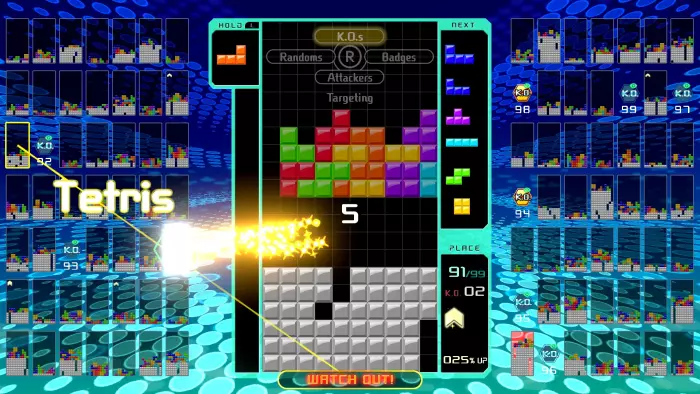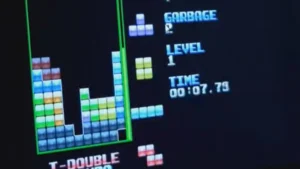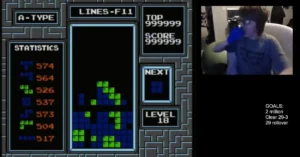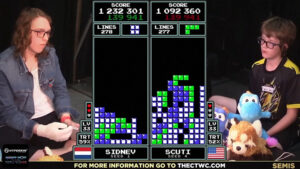
Henk Rogers on Tetris and the Future of Play: 2025

Few names in gaming carry the weight of Henk Rogers. As the co-founder of The Tetris Company and the man who brought Tetris from Soviet obscurity to global stardom, Rogers is a pioneer whose influence spans decades. His journey—from a game designer in Japan to a renewable energy advocate in Hawaii—reads like a saga of persistence, vision, and reinvention. In recent interviews, particularly around the launch of his memoir The Perfect Game: Tetris, From Russia With Love in April 2025, Rogers has shared insights on Tetris’s enduring legacy, the evolution of play, and where gaming might head next. This blog dives into his reflections, drawing from his latest interviews and his storied career, to explore what’s next for Tetris and the broader landscape of play.
Fallout 3 Reimagined
The Tetris Origin Story: A Game That Changed Everything

Tetris, created by Alexey Pajitnov in 1984, was a puzzle game born in the Soviet Union, designed on a rudimentary Electronika 60 computer. Its simple yet addictive mechanics—stacking falling blocks to clear lines—captivated players. But it was Henk Rogers who saw its global potential. At the 1988 Consumer Electronics Show (CES) in Las Vegas, Rogers, then a publisher with his company Bullet-Proof Software, stumbled upon Tetris. As he recounted in an NBC Bay Area interview, he found himself returning to the Tetris machine four times, hooked by its elegant simplicity. “Simple doesn’t mean uninteresting,” he said. “It means more people can play.”
Rogers’s mission to secure Tetris’s rights was anything but simple. His journey took him to Moscow, navigating Cold War-era bureaucracy and tense negotiations with ELORG, the Soviet software export agency. His persistence paid off, securing the handheld rights for Nintendo’s Game Boy. The 1989 Game Boy launch, bundled with Tetris, became a cultural phenomenon, selling millions and cementing Tetris as a household name. Rogers later co-founded The Tetris Company with Pajitnov in 1996, standardizing the game’s rules and protecting its brand. Today, Tetris remains one of the most ported and played games, with over 425 million mobile downloads and a Guinness World Record for the most prolific puzzle game series.
In his memoir, Rogers corrects Hollywood’s dramatized version of this story, as seen in the 2023 Apple TV+ film Tetris. The movie, starring Taron Egerton as Rogers, leaned into spy-thriller tropes—car chases, KGB intrigue—that Rogers found exaggerated. “There was so much Hollywood in the movie,” he told The Verge. “It just drove me nuts.” His book, The Perfect Game, offers the real story, from his early days coding Japan’s first major RPG, The Black Onyx, to his lifelong friendship with Pajitnov.
Why Tetris Endures: The Psychology of Play

Tetris’s staying power is no accident. Rogers often compares it to “Happy Birthday,” a universal staple that transcends trends. “All the other games are going to go out of fashion, and Tetris is still going to be here,” he told IGN in 2023. Its appeal lies in its accessibility and depth. The game requires no language, minimal graphics, and intuitive mechanics, making it inclusive across ages, genders, and cultures. Rogers notes that Tetris was among the first games to attract women in large numbers, a trend that reshaped the industry. “Construction beats destruction,” he said, highlighting Tetris’s focus on building lines rather than blowing things up.
Psychologically, Tetris taps into a primal satisfaction. Rogers describes it as a game where decisions accelerate, pushing players to think faster under pressure. Studies, like one from Oxford in the early 2000s, suggest Tetris can reduce PTSD symptoms by engaging the brain’s visual-spatial processing, offering therapeutic potential. Rogers sees this as a future avenue, envisioning Tetris in medical devices or wellness apps, where its calming yet engaging gameplay could aid mental health.
The Future of Tetris: Esports, Interfaces, and Beyond

Rogers, now semi-retired from The Tetris Company (his daughter Maya runs it), remains a visionary for Tetris’s future. In a 2025 Game Rant interview at Gamescom LATAM, he outlined ambitious plans. One key focus is esports. Rogers dreams of Tetris as a global competitive sport, akin to golf, with professional players sponsored by brands like McDonald’s or United Airlines, competing in televised tournaments. “I see a format of Tetris that looks super exciting on television,” he told ScreenRant. The Tetris Grandmaster arcade game in Japan, which showcases elite skill, hints at this potential.
Another priority is improving the touchscreen interface. Rogers has long criticized the clunky translation of Tetris’s button-based controls to mobile devices. “I’m not a big fan of the touchscreen interface the way it is right now,” he admitted. The Tetris Company is developing a solution, possibly involving AI-assisted move suggestions, to make mobile play as intuitive as console versions. A 2012 GameZone interview foreshadowed this, with Rogers describing a “Star Trek” inspired interface where players touch where they want blocks to go, bypassing virtual buttons.
Merchandising is also booming. Under Maya’s leadership, a third of The Tetris Company’s revenue comes from non-gaming products like Tetris-themed Jenga-style toys sold at Costco. “Who would have thought that would be a moneymaker?” Rogers marveled. From apparel to puzzles and furniture, Tetris is becoming a lifestyle brand, reflecting its cultural ubiquity.
The Evolution of Play: Rogers’s Critique of Modern Gaming

Rogers’s perspective on gaming’s future is shaped by his roots as a designer who values gameplay over flash. He’s critical of the industry’s shift toward monetization-driven models. In his Game Rant interview, he lamented mobile games built around “tiny little cycles” of ads and microtransactions. “It’s such an overhead for a game designer to have to build in that ‘give me money’ routine,” he said. He contrasts this with Tetris’s model: a one-time purchase that offers endless play, like buying a cup of coffee that lasts forever.
Rogers also reflects on gaming’s cultural role. At Gamescom LATAM, he described games as an “escape” for those facing boredom or hardship, particularly in regions like Latin America. Yet he worries that the industry prioritizes profit over creativity. His memoir recounts standardizing Tetris in 1996 to unify disparate versions (like Nintendo’s and Sega’s), ensuring consistent gameplay. He believes modern games could benefit from similar focus on quality and fairness.
Beyond Tetris: Rogers’s Mission for a Sustainable Future

Rogers’s story doesn’t end with gaming. A near-fatal heart attack in 2005 shifted his focus to sustainability, leading him to found the Blue Planet Foundation. His advocacy helped make Hawaii the first U.S. state with a 100% renewable energy law by 2045, a model now adopted by 21 states. His Blue Planet Energy develops lithium ferrous phosphate batteries, which he considers safer and more sustainable than standard lithium-ion. Rogers also chairs the Pacific International Space Center for Exploration Systems and founded the International MoonBase Alliance, supporting space colonization research.
This pivot reflects Rogers’s belief in using influence for impact. “I think we all need to think about what we’re going to do after we’ve made our money,” he told The Mirror. His work with Burning Man to reduce carbon use and his global Blue Planet Alliance show a commitment to systemic change, mirroring the “crazy persistence” that brought Tetris to the world.
What’s Next for Play?

Henk Rogers’s vision for the future of play blends nostalgia with innovation. Tetris, he believes, will evolve through competitive formats, smarter interfaces, and therapeutic applications, remaining a cornerstone of gaming. But his broader hope is for an industry that prioritizes meaningful experiences over exploitative models. “It’s about the game,” he told NBC Bay Area. “If the game has good gameplay, the graphics and sound don’t matter that much.”
Rogers’s memoir, The Perfect Game, isn’t just a Tetris origin story—it’s a call to create with purpose, whether in games or global challenges. As Tetris celebrates its 40th anniversary and continues to thrive (recently featured in Nintendo’s music app and Digital Eclipse’s Tetris Forever), Rogers’s legacy reminds us that the best games, like the best ideas, endure through simplicity, universality, and heart.




